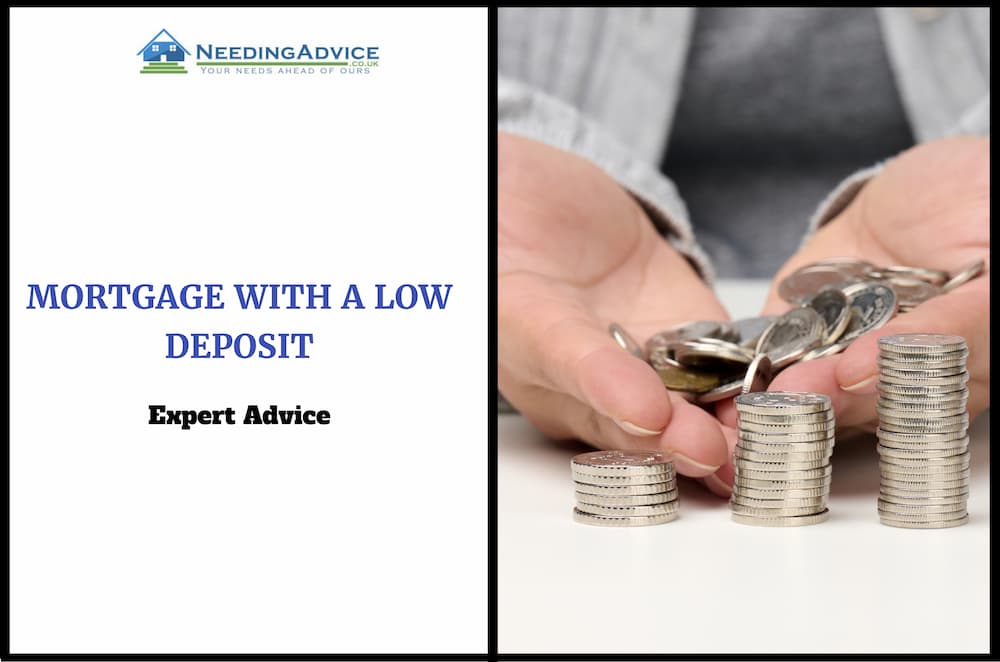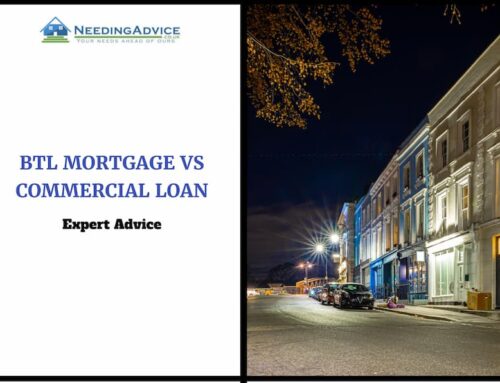Having a low deposit is not big problem while applying for a mortgage. In the uk if you are getting a low deposit mortgage it can help you in long terms.
Banks and lenders nowadays are more flexible and understanding than before, so you can easily get a mortgage loan with a smaller deposit. When it comes to getting a mortgage, the amount of the deposit is a major factor in determining what rate you can get. Generally speaking, the larger your deposit, the lower your interest rate will be. However, you don’t need a large deposit to get a mortgage and purchase a property in the UK.
In most cases, you can qualify for a mortgage with as little as 5% deposit. This means that if you’re purchasing a home for £400,000, you only need to provide the lender with a deposit of £20,000.In this article on mortgage with low deposit, we will explore this topic in details and also answer the frequently asked questions.
Your home may be repossessed if you do not keep up repayments on your mortgage.
The article is updated as of Nov 27, 2024
Comparison of Low Deposit Mortgage Options
| Lender | Product Name | Deposit Requirement | Interest Rate | Fixed Term | Additional Details | Source |
|---|---|---|---|---|---|---|
| Skipton Building Society | Track Record Mortgage | 0% (No Deposit) | 5.29% | 5 years | Designed for renters with a strong payment history; no guarantor required. | Skipton Building Society |
| Yorkshire Building Society | 5% Deposit Mortgage | 5% | 5.79% | 5 years | Available for first-time buyers; up to 99% loan-to-value (LTV). | Yorkshire Building Society |
| Nationwide Building Society | Helping Hand Mortgage | 5% | Variable | 2-5 years | Allows borrowing up to 5.5 times income for first-time buyers. | Nationwide |
| Barclays | Family Springboard Mortgage | 0% (No Deposit) | Variable | 3-5 years | Requires family or friends to provide 10% of the property price as security. | Barclays |
| Accord Mortgages | 5% Deposit Mortgage | 5% | 5.99% | 5 years | Available for properties up to £500,000; aimed at first-time buyers. | Accord Mortgages |
What is a low deposit mortgage?
A low deposit mortgage is a type of loan where you can borrow money for a property purchase with a deposit as low as 5%. The lenders usually require you to provide a minimum amount of money as your contribution towards the purchase. This deposit is used to reduce the total amount that needs to be financed and it also helps in lowering the risk for the lender. However, there is also a possibility of getting a mortgage with no deposit but you need to meet certain requirements. If you are interested, you can always contact a mortgage broker to help you with the most suitable deal.
How to get a mortgage with low deposit?
If you’re looking to get a mortgage with a low deposit, the first thing you should do is make sure that you do your research and compare different lenders in the market. Different lenders offer different interest rates and terms, so it’s important to shop around for the best deal. You should also consider getting a mortgage broker to help you with the process.
What are the benefits of taking a low deposit mortgage?
A low deposit mortgage can be beneficial for those who don’t have enough money to put down a larger deposit. It allows them to purchase a property with a smaller upfront cost, which makes it easier for them to budget their finances. Additionally, this type of loan also has lower interest rates, as lenders tend to be more willing to offer lower rates on loans with a smaller deposit. This can help save money in the long run as you won’t be paying as much interest on your loan.
What are some major drawbacks of this mortgage?
One of the major drawbacks of a low deposit mortgage is the high interest rates that come along with it. As lenders consider low deposit mortgages to be more risky, they often charge higher interest rates than those associated with larger deposits.
This can lead to higher monthly payments and longer repayment terms. Additionally, most lenders will require mortgage protection insurance when taking out a low deposit mortgage, which can add additional costs to the loan. Finally, due to the risk involved with low deposit mortgages, lenders may require additional documents such as proof of income or bank statements in order to qualify for this type of mortgage.
How do I qualify for a low deposit mortgage?
Mortgage qualification criteria is different for each lender, so it’s important to check with them directly. Generally speaking, you will need to have a good credit score and a stable income in order to qualify. You may also be required to provide additional documents such as proof of employment or bank statements. It’s also important to note that some lenders may require you to purchase mortgage protection insurance in order to secure the loan .
How can government schemes like Help to Buy assist in securing a low deposit mortgage?
Government schemes can assist in securing a low deposit mortgage in the UK by reducing the amount of money borrowers need to raise as a deposit. This can make it easier for people to get on the property ladder, even if they have limited savings.
There are two main ways that government schemes can help people get a low deposit mortgage:
- Equity loans: Equity loans are government loans that can be used to buy a new-build home with a deposit of just 5%. The equity loan is interest-free for the first five years, and then borrowers will need to start paying interest at a rate that is set by the government. The equity loan is repaid over 25 years, or when the borrower sells the property, whichever comes first.
- Mortgage guarantee scheme: The mortgage guarantee scheme is a government scheme that helps lenders to offer 95% loan-to-value (LTV) mortgages. This means that borrowers can get a mortgage with a deposit of just 5%. The government provides a guarantee to lenders, which protects them against losses if the borrower defaults on the mortgage.
Both of these schemes can make it easier for people to get a low deposit mortgage. However, it is important to note that there are eligibility criteria for both schemes, and borrowers will need to meet certain requirements in order to qualify. We would suggest you to contact a mortgage broker to help you with the mortgage deal.
How does your credit score affect your eligibility for a 5% deposit mortgage?
Credit score always plays a crucial role in securing a mortgage deal. Your credit score will be taken into consideration by lenders when assessing your eligibility for a 5% deposit mortgage. A good credit score gives you more options in terms of the interest rates and terms available to you, as lenders are more likely to offer better deals to borrowers with a solid credit history.
On the other hand, if your credit score is poor, lenders may be unwilling to offer you a 5% deposit mortgage, or they may ask for a larger deposit in order to cover any potential losses. It is therefore important to ensure that your credit score is up to date and accurate before applying for a mortgage.
What types of properties can you buy with a small deposit mortgage?
You can buy both residential as well as buy-to-let property using a small deposit amount mortgage . However, it is important to note that the type of property you are purchasing will affect the size of the deposit required. For example, lenders may require a larger deposit for a buy-to-let property as this type of purchase carries additional risk due to potential rental income fluctuations.
Can I get a Buy-to-Let mortgage with low deposit ?
Yes, it is possible to get a Buy-to-Let mortgage with a low deposit. However, lenders may require you to provide additional documents such as proof of income or bank statements in order to qualify for this type of mortgage. You may also need to have a good credit score as well as a stable income in order to be approved for this type of mortgage. Additionally, some lenders may require a larger deposit than usual if they consider the risk to be higher.
What other costs should you keep in mind when taking out a 5% deposit mortgage?
When taking out a 5% deposit mortgage, it is important to keep in mind the additional costs involved in the process. These may include valuation fees, legal fees, stamp duty and any applicable fees for mortgage protection insurance. It is also worth noting that lenders may charge higher interest rates on mortgages with a low deposit amount, so it is important to take this into consideration when budgeting for your mortgage.
What are the alternatives to low deposit mortgages?
Alternative to low deposit mortgages include Offset Mortgages, Bridging Loans and Guarantor Mortgages. An offset mortgage is a type of loan where the borrower keeps their savings in an account linked to the mortgage. The savings are used to reduce the amount of interest that is charged on the loan, thus saving money in the long run. Bridging loans are short-term loans that can help you access funds quickly when purchasing a property. Finally, Guarantor Mortgages involve a third party guaranteeing your mortgage in the event of your defaulting on payments.
In addition to low deposit mortgages, there are other options available that can help make it easier for people to get a mortgage. Shared Ownership schemes are designed to help people who cannot afford a full mortgage but still want to purchase a property. With this type of scheme, the buyer purchases a share of the property and pays rent on the remaining share owned by the housing provider.
Next Steps
Getting a mortgage with a low deposit can help to make buying a property more affordable. However, it is important to be aware of the additional costs involved and to consider the alternatives available. If you are considering taking out a 5% deposit mortgage, it is essential that you get advice from an independent financial adviser who can provide you with tailored advice on your individual circumstances.






